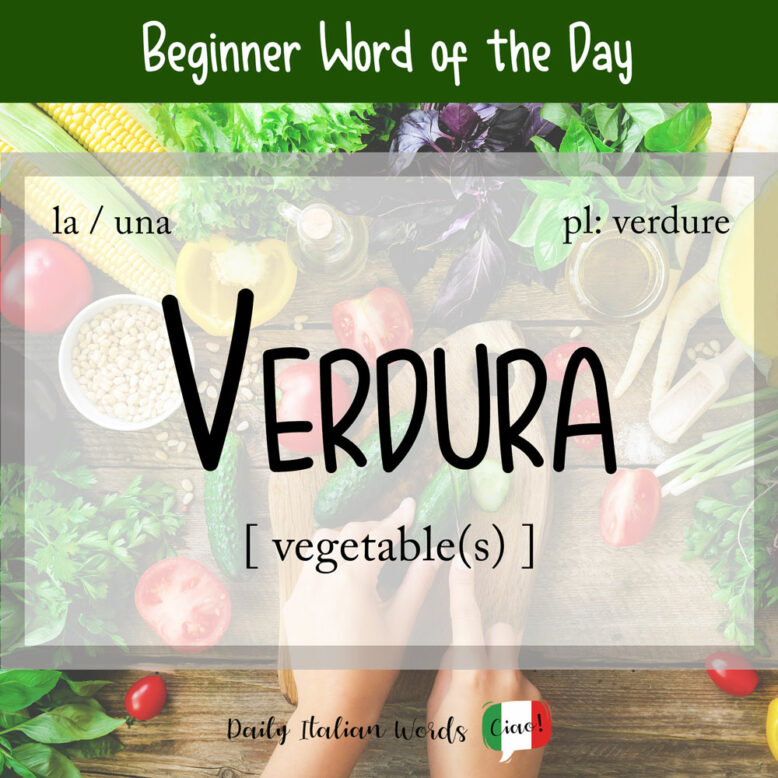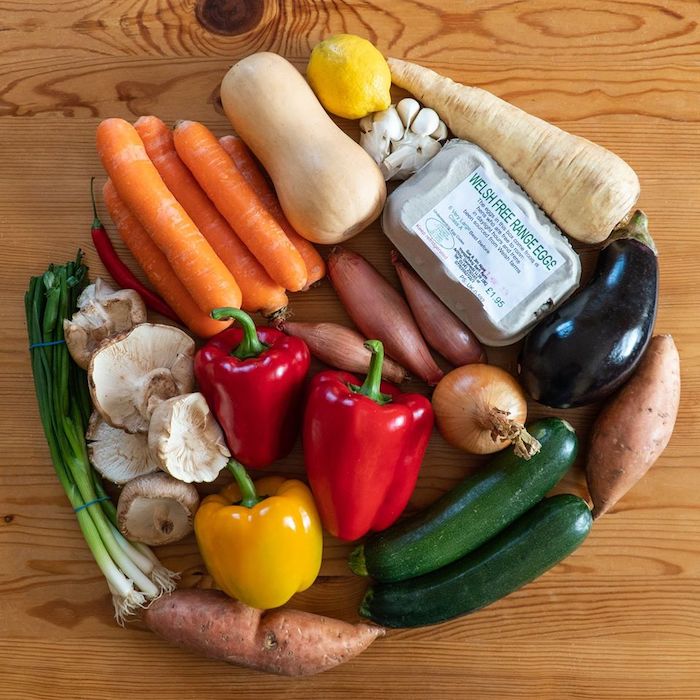The word verdura in Italian is interesting because it is normally used as a singular collective noun, referring to the category vegetables as a whole, or more specifically, the parts of a vegetable plant that can be used in human nutrition.

For example, if you say La verdura fa molto bene alla salute, you are saying that vegetables as a food group are good for your health.
Questo negozio vende frutta e verdura.
This shop sells fruit and vegetables.
That being said, verdura can occasionally translate as the singular vegetable. Alternatively, you can use the close synonym ortaggio.
La patata è la verdura / l’ortaggio più popolare in Inghilterra.
The potato is the most popular vegetable in England.

Despite being a collective noun, verdura can also be used in its plural form, verdure, when talking about a number of vegetables.
Queste verdure sono marce!
These vegetables are rotten!
Some popular vegetables in Italy include:
- pomodoro = tomato
- cipolla = onion
- lattuga = lettuce
- patata = potato
- carota = carrot
- peperone = pepper
- zucchina = zucchini
- melanzana = eggplant
- broccolo = broccoli
- cetriolo = cucumber
- finocchio = fennel
- sedano = celery
A greengrocer is known as either a fruttivendolo or an ortolano. The latter also translates as market gardener or horticulturalist.
Below are some common words and expressions that feature the word verdura:
- passato di verdura = vegetable puree
- verdura cruda = raw vegetables
- verdura cotta = cooked vegetables
- verdura a foglia verde = green vegetables
- verdura fresca = fresh vegetables
- verdura biologica = organic vegetables
Another translation for vegetable in Italian is vegetale, which is used as an adjective to describe something that is plant-based. For example, vegetable stock is known as brodo vegetale. Vegetale as a noun is another word for plant (pianta).
Finally, verdura can also refer to the green colour of vegetation (verde means green in Italian).
Heather Broster is a graduate with honours in linguistics from the University of Western Ontario. She is an aspiring polyglot, proficient in English and Italian, as well as Japanese, Welsh, and French to varying degrees of fluency. Originally from Toronto, Heather has resided in various countries, notably Italy for a period of six years. Her primary focus lies in the fields of language acquisition, education, and bilingual instruction.


